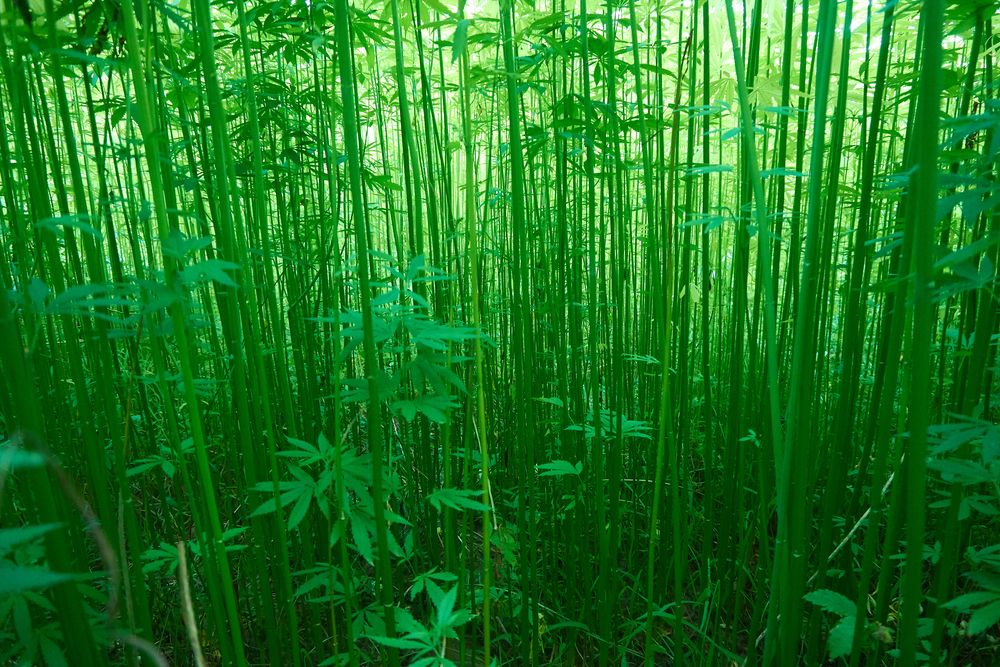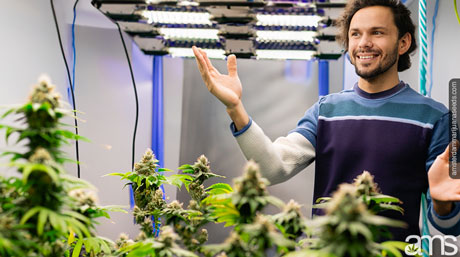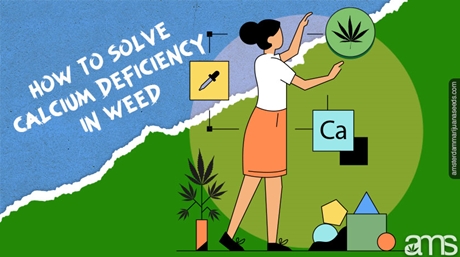As the cannabis industry transitions itself from the black market and illegal practices to new amendments that support its legalization, ethical farming practices also come next. Historically, cannabis has been grown in unregulated markets, hidden from the sight of many, and is associated with various myths and rumors around it.
Today, with the help of various studies that support the potential benefits of cannabis and other explorations about the subject, cannabis farming is slowly transitioning to light. More cannabis growers are now employing ethical practices that do right by the customer and the plant.
When talking about ethical cannabis farming practices, this topic is often referred to by many as a controversial subject. It is often the less discussed topic as many consider it inappropriate to talk about.
In this article, we are going to unravel the truth about feminized seeds and the ethics of cannabis farming. We will also discuss the ethical practices to produce feminized cannabis seeds, the pros, and cons of producing them, and more ethical cannabis farming practices used.
Continue reading to learn all of these!
Brief History of Cannabis Farming
Before we continue, let us take a look back at the history of cannabis cultivation. In an unregulated market, cannabis growers are pragmatic and utilize practices to achieve the largest yield and highest profit.
The legalization of cannabis has necessitated a serious transformation in growing practices. Various regulatory agencies are now keeping an eye to oversee unnatural or unethical practices and correcting them.
When cannabis was first legalized for medical use in 1996 in California, there wasn’t much information about the ethical growing practices and restrictions required. The State of California is still adding to the list of what pesticides or fungicides are approved to use.
Fortunately, the surge in available information brought about by the legalization of cannabis played an essential role. More agencies now implement regulations and policies for product testing to help consumers learn about the ethics of cannabis farming.
This is a breakthrough in the cannabis industry. The term “Ethical Cultivation” mandates the right and wrong ways of cultivating cannabis. Cannabis farming practices that may pose risks to consumers are ethically wrong.
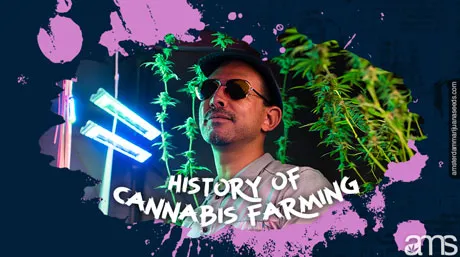
Getting To Know Feminized Cannabis Seeds
Before leading to much deeper details about feminized seeds, we need to first know what feminized cannabis seeds are and how to identify them. While it is quite a challenging process, especially for novice growers, identifying female cannabis from male ones has a significant impact on the growing process.
Female cannabis is commonly characterized as having abundant leaves compared to their male counterparts. During the maturing phase, female plants will start to produce more bushy hairs on the end of their branches.
For seed companies, the process of making feminized seeds is straightforward. However, others still have concerns. Some say that feminized seeds produce more hermaphrodites while others claim that the process is unnatural or unethical.
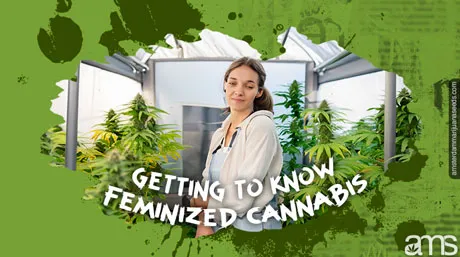
How Feminized Seeds Are Made?
There are various techniques used by cannabis growers in producing feminized seeds. There are still some that utilize unethical ways. While this method momentarily works, this technique can be disastrous to the plant.
Rodelization Method
The advantage of this is that it is 100% natural and does not use any chemicals. Instead, growers use the factors of temperature, nutrition, photoperiod, and PH levels without using any chemicals.
This is a traditional method which is why it is a given knowledge that most cannabis growers know how to do this. Instead of using other chemicals, growers who use this method only interrupt the lighting, nutrient intake, and other factors that affect its growth to further boost its yields.
Silver Thiosulfate Solution
Most seed companies use this method. It is easy to prepare but the lifespan is limited. The solution is made of distilled water, silver nitrate, and sodium thiosulphate. However, you cannot consume any part of the cannabis plant that has been sprayed with STS
Gibberellic Acid
Another way is to inhibit plant hormones such as gibberellins to develop feminized seeds. While there are different varieties of gibberellins, the most commonly used among cannabis growers is gibberellic acid.
Colloidal Silver Method
Just like STS, when opting for this method, you cannot consume any part of the cannabis plant that has been sprayed with this solution. The solution is made of silver particles suspended in distilled water. The formulation contains antibacterial and antifungal properties.
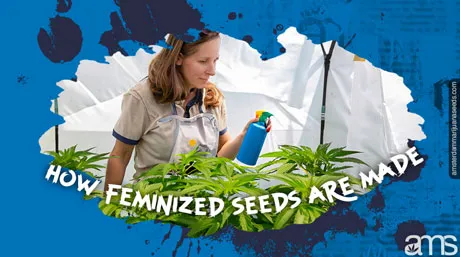
Pros and Cons of Feminized Seeds
After knowing the different methods and farming practices used to produce feminized seeds, now is the time to weigh down the pros and cons of using feminized seeds.
Pros:
It saves time, money, and space
Some cannabis growers especially those who are farming indoors don’t have the luxury of time, money, and space to check on their plants now and then. When using feminized seeds, it is a 100% guarantee that it will produce only female plants saving up the 50% probability when using regular seeds.
Feminized seeds are beginners friendly
Feminized seeds are easier to handle, especially among novice growers. With feminized seeds, you no longer have to worry about spotting and culling out the males before start dropping pollen.
It benefits growers with more control
Another good thing about using feminized seeds is it allows growers better control the breeding process. It also allows growers to better understand the diversity of cannabis plants in a way that will enlighten new breeding potentials.
It offers more genetically stable plants
Feminized seeds give better cannabis genes than other regular seeds. Female plants are known to be more productive, aromatic, powerful, and attractive.
Cons:
Pollination can be difficult
Female plants have to go through a reversal process before they can produce pollen. As known, not all female plants produce pollen and might even have empty pollen sacks. The whole process of pollination takes time, skills, and effort on the part of the cannabis grower.
It can be more costly
Feminized cannabis seeds cost more upfront. Reversing female plants also requires resources and not all do not produce much pollen as male plants.

Amsterdam Seed Bank’s Ethical Cannabis Farming Practices
In the cannabis industry, every company is vying for a spot in the crowd. Growers are racing to produce the most potent and exciting cannabis strains.
Amsterdam Seed Bank is a one-stop-shop for all your cannabis needs. They have been providing the best quality cannabis seeds to the public since 1996.
For over 25 years in the cannabis industry, they have already begun to search for ways to improve sustainability and impose ethical cannabis farming practices.
To name a few, here are some ways that seed companies like Amsterdam utilize to improve cannabis sustainability:
Natural Pesticides over Synthetic
There are many seed bank companies that sell feminized cannabis seeds today. However, compared with the others, Amsterdam Seed Bank cultivate those seeds from cannabis plants that are grown with natural pesticides instead of synthetic ones.
The practice of using natural methods and techniques in growing cannabis plants even synthetic products is much more convenient and hassle-free to use making cannabis plants more reliable to use both for recreational and medicinal pursuits.
Sustainable Organic Process
While chemical fertilizers are getting more popular in the market today because of their more convenient ways and approach to growing cannabis, the use of those triggers higher risks against the long-term sustainability of the resources. That is why here at Amsterdam Seed Bank, no harsh pesticides or chemicals are being applied to cannabis plants as this process can seep into the earth, destroy the soil, contaminate the water, and ruin other resources.
Another concern is the packaging guidelines that are required by the law to be followed. However, most cannabis producers package their products in single-use plastic.
While other cannabis companies continue to practice unsustainable practices, companies like Amsterdam Seed Bank are leading by examples of some sustainable practices and promoting ethics of cannabis farming including:

Green Packaging
Plastic packaging has quite an impact both on the environment and on human health. Single-use plastics as packaging are rarely repurposed and recycled.
Rather than using single-use plastic for packaging, Amsterdam considers recyclable materials to help maintain the product’s purity without harming the environment.
Regenerative Farming
Regenerative farming is mainly concerned with the practice of conservation and rehabilitation that increases biodiversity, improves the water cycle, and enhances the ecosystem.
To practice this ethical agricultural process, after the harvesting period, commercial growers and cannabis producers are required to repair the soil that has been damaged by the chemical fertilizers utilized. In regenerative farming, the process prevents nutrient loss, sustains the soil’s ability, and reduces the need to use harmful chemicals.
Environmental Sustainability Initiatives
Aside from regenerative farming and green packaging, there are other ways that cannabis companies get involved to promote environmental sustainability. Growing outdoors, utilizing solar energy, and building from eco-friendly materials are just some to name a few of the sustainable initiatives they can take.
Verified Genetic Match
Amsterdam Seed Bank is committed to offering cannabis seeds that have been ethically cultivated. Thus, all their cultivars are certified and verified to ensure that you get the best genetic match that you are looking for.
Conclusion
The cannabis industry is unlike most other industries. While its legalization is continually under process in some states and territories, cannabis remains a federally illegal substance to consume.
However, the cannabis industry is developing. As cannabis graduates from the underground market, improved practices and ethical cannabis farming methods should align with this growth.
While there are cannabis companies that remain unregulated today, more and more cannabis seed banks and companies are initiating to follow ethical practices when it comes to cannabis farming.
Frequently Asked Questions
Question: What are the ethical practices for cannabis farming?
Ethical cannabis farming practices prioritize consumer safety and environmental sustainability. They involve using natural pesticides instead of synthetic ones, adopting sustainable organic processes without harsh chemicals, implementing regenerative farming techniques to restore soil health, promoting environmental sustainability initiatives like solar energy use and eco-friendly materials, and providing verified genetic matches to ensure quality.
How are feminized seeds produced using ethical methods?
Ethical production of feminized seeds involves using natural techniques rather than unethical methods. Some common methods include rodelization, which utilizes temperature, nutrition, photoperiod, and pH levels without chemicals; silver thiosulfate solution, which is prepared with distilled water, silver nitrate, and sodium thiosulfate; gibberellic acid, a plant hormone inhibitor; and colloidal silver method, which uses silver particles suspended in distilled water. It’s important to avoid consuming any part of the cannabis plant treated with these solutions.
What are the pros and cons of using feminized seeds?
Pros of using feminized seeds include time, money, and space savings since they guarantee female plants, beginner-friendliness, better control over the breeding process, and genetically stable plants with improved traits. Cons include the difficulty of pollination as female plants need to undergo a reversal process to produce pollen, the higher upfront cost of feminized seeds, and the resources required for reversing female plants.












